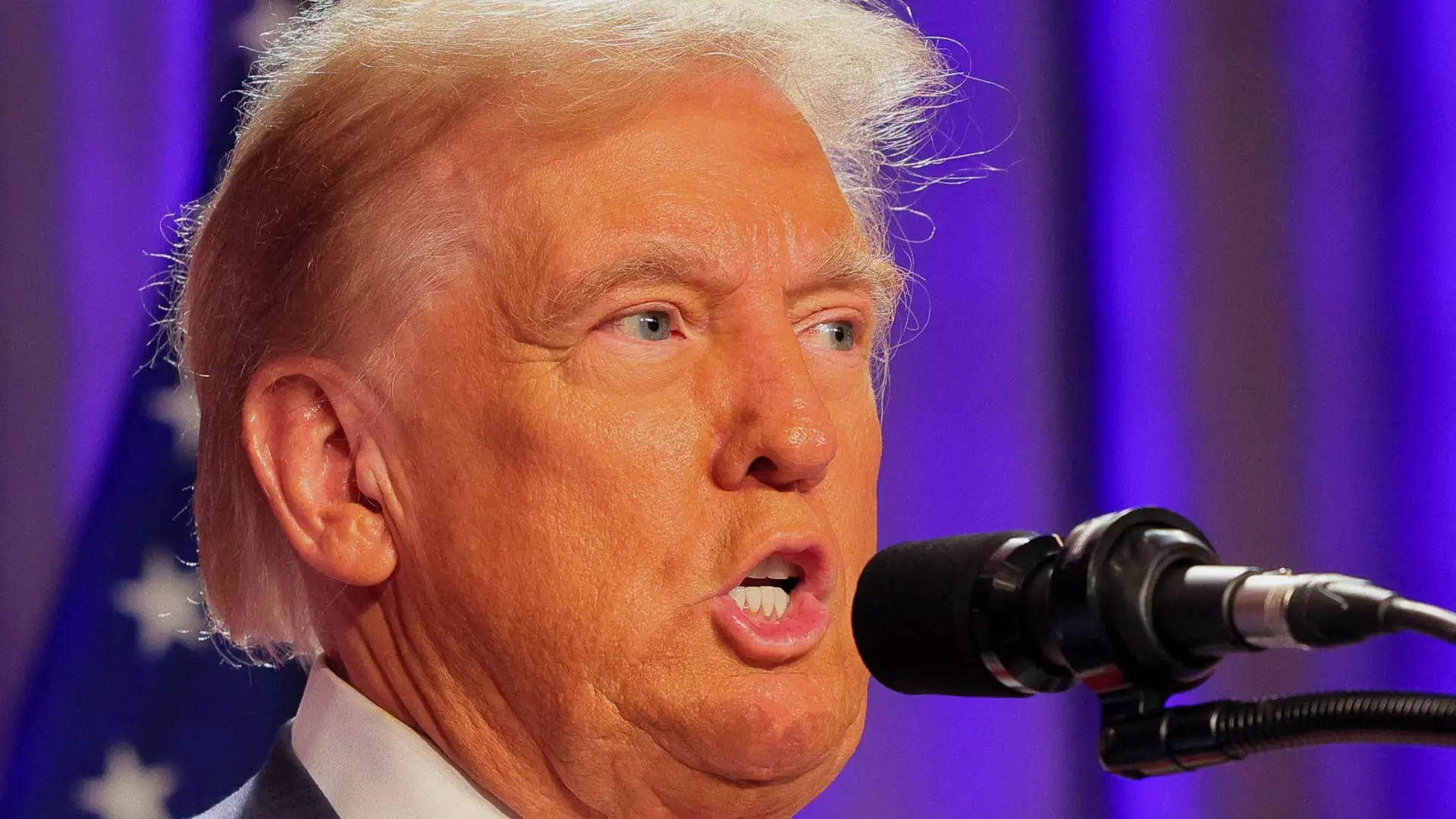In the realm of international relations, the nuances of diplomacy often dictate the effectiveness of military aid and alliances. In an exclusive interview with NBC’s “Meet the Press,” President-elect Donald Trump outlined a vision for foreign policy that raises substantial questions about the future of U.S. military aid to Ukraine and the structure of NATO. His statements indicate a recalibration not only of American priorities but also of longstanding alliances that have shaped global dynamics since the end of World War II.
During his conversation with NBC’s Kristen Welker, Trump suggested that Ukraine might receive “possibly” less military aid under his administration. He highlighted the stark disparities in financial support between the United States and European nations, claiming, “The one thing that should happen is that Europe…should equalize.” This perspective raises complex discussions about the distribution of responsibility amongst NATO allies when facing external threats, particularly from Russia.
As the conflict in Ukraine continues, with U.S. aid surpassing $62 billion since the onset of the war in February 2022, Trump’s proposition signals a potential shift in how America views its role in global conflict management. His reference to Ukrainian President Volodymyr Zelenskyy as “maybe the greatest salesman of any politician that’s ever lived” insinuates a belief that much of the support comes from Zelenskyy’s adept maneuvering rather than an assessment of Ukraine’s pressing military needs. This paints a picture where personal diplomacy overshadows systemic vulnerabilities, raising concerns about the implications for Ukraine’s defense strategy.
Trump’s consistent critique of NATO, particularly his assertion that the alliance needs to “pay their bills,” reinforces a transactional approach to international alliances. His focus on Europe’s financial contributions echoes a broader skepticism of multilateral cooperation, which could significantly weaken the deterrence posture against Russian aggression. With threats to withdraw from NATO looming, Trump’s administration may prioritize a larger dialogue about defense spending among member states, potentially court challenges that could destabilize the coalition.
Furthermore, the essence of Trump’s comments about the U.S.’s geographical buffer—“We have a little thing called an ocean in between us”—intensifies the ‘America First’ narrative that dominated his previous administration. It reveals an inclination to reconsider America’s engagement in conflicts deemed distant, a stance that could alienate traditional allies who view the U.S. as a cornerstone of security against Russian expansionism.
Negotiation Versus Containment
Perhaps the most striking part of Trump’s statements stems from his call for an immediate ceasefire in Ukraine, framing an end to hostilities as a top priority. His assertion that the war “should never have started, and could go on forever” underscores a preference for negotiation over military engagement, which contrasts sharply with the long-standing policies of previous administrations. This inclination toward rapid negotiation, facilitated by personal relationships with both Russian President Vladimir Putin and Chinese President Xi Jinping, presents a viewpoint that prioritizes diplomacy over armed conflict.
Yet, advocating for negotiation may reflect an idealistic perspective that overlooks the complexities and entrenched positions of the entities involved. Trump’s approach seems to hinge upon his claim of having a personal rapport with Putin, lending credence to the belief that past relationships can subtly sway big power dynamics in current conflicts.
The implications of Trump’s foreign policy strategies extend beyond Europe, as evident in his remarks concerning Taiwan and China. While expressing a desire to prevent a Chinese invasion of Taiwan, Trump’s reluctance to decisively state that the U.S. would intervene illustrates a broader hesitation about engaging militarily. This is reflective of a potentially isolationist foreign policy approach that may redefinition of international obligations.
The ongoing turmoil in Syria, highlighted by Trump’s comments on President Bashar al-Assad fleeing his country, suggests a broader reconsideration of America’s role in the Middle East. By asserting that Russia shifted its focus from Syria to Ukraine, Trump hints at an evolving landscape where U.S. interests in the region may receive diminished priority, allowing for a potentially significant withdrawal that impacts regional balance.
As Trump prepares to re-enter the political sphere with these new foreign policy outlines, the world watches closely. The upcoming administration’s approach could usher in significant changes to military support structures, alliance dynamics, and the overall U.S. role on the global stage. While advocating for negotiation appears appealing, the practicality of such strategies in face of aggression and instability presents daunting challenges—one that may test the very fabric of international diplomacy in the years to come.


Leave a Reply
You must be logged in to post a comment.